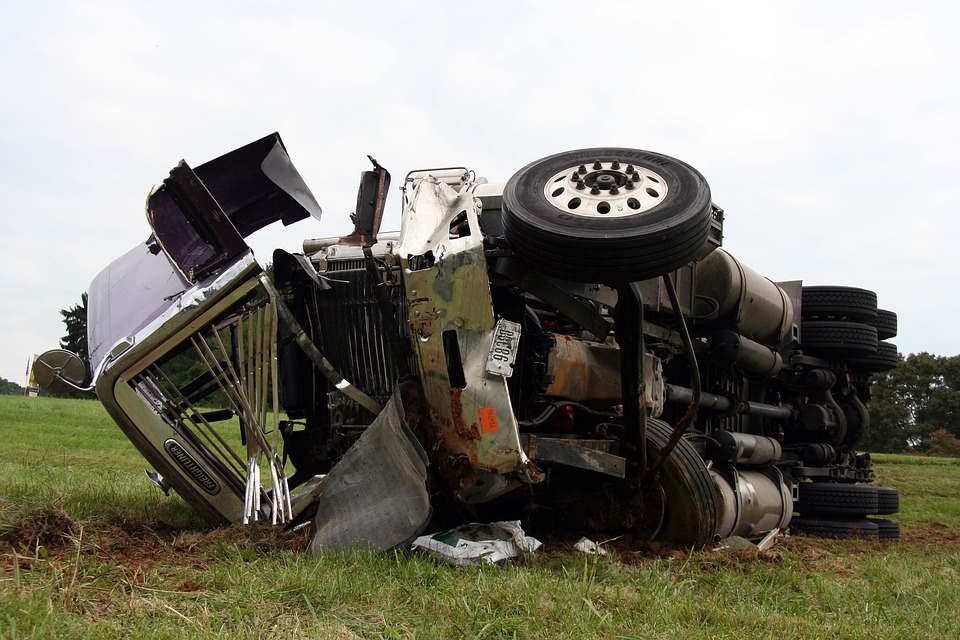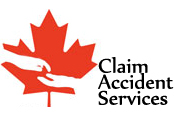
If you’ve ever driven next to a large truck on the Toronto highways, you know that it’s a situation that puts you on high alert. There’s a sense of danger that comes from getting up close to a vehicle weighing up to 4,500 kilograms, a feeling that the wrong move could have disastrous consequences. A feeling that is one hundred percent correct.
Commercial vehicles make up only 2% of the vehicles licensed to drive on Canada’s roads according to the latest statistics available from Transport Canada’s National Collision Database (NCDB). But they travel twice the distance that passenger vehicles do on our roads each year.
The Traffic Injury Research Foundation conducted a study of heavy truck collisions in Ontario which discovered that after adjusting for the number of kilometers driven, heavy trucks have twice the number of fatalities than other vehicles. These accidents kill almost 2,000 Canadians every year and seriously injure another 10,000.
What Makes Trucks and Other Commercial Vehicles in Canada So Dangerous?
Driving a commercial vehicle always has some inherent risks, which lawmakers try to mitigate with legislation. Drivers can usually avoid one risk factor, and they are generally able to handle two. One three or more come together, especially if one of the factors is extreme, disaster may be almost inevitable.
Some risk factors that make truck accidents more likely are:
- Geography. As the second largest country in the world, Canada’s road network covers almost 900,000 kilometers. The Canadian Trucking Alliance estimates that over 90% of all consumer products and perishables used by the 37.59 million residents of Canada are transported by truck. Demand for goods is always increasing, putting more and more trucks on the road that are required to travel vast distances.
- Tight schedules. Drivers of large trucks have legal limits on the number of hours worked, but because the amount of profit decreases as time passes, they often feel pressure to delay or ignore rest periods. They may be driving through the night, during the day and at odd hours, leaving them at risk for driver fatigue or even falling asleep at the wheel.
- Lack of training. There are surprisingly few requirements to become a commercial driver in Canada. Canadians in many jurisdictions can simply apply to take the test, without having to complete any specific course of training. some jurisdictions imposing much more stringent requirements than others. This may allow drivers who have large gaps in their knowledge or experience to still qualify for licensing.
- Sheer size. Large trucks are significantly harder to handle and control than passenger vehicles due to their much greater size. Blind spots are proportionately longer, and the size of the space needed to make turns is larger, both in length and width. Trucks and commercial vehicles sit much higher than passenger vehicles, making it easy to overlook smaller vehicles, particularly when they stop suddenly or move in illogical ways.
- Greater weight. Commercial vehicles are substantially heavier than passenger vehicles, especially when they are carrying a full, dense load. Greater weight means increased momentum and inertia, causing a heavy truck to need longer distances to get up to speed or come to a stop. Car drivers who are not accustomed to driving around large trucks may not realize this and dart in front of a truck as it is attempting to stop.
Trucks are larger and heavier than other vehicles on the road. When two cars of a similar weight collide, both cars rebound, releasing some of the energy and lessening the severity of the crash. When a car and truck collide, the larger vehicle may not move at all from the collision, causing the other vehicle to absorb all of the force of the impact.
This is why accidents with trucks so often result in extensive property damage, personal injury and death.
What makes truck accidents so complicated?
Because commercial vehicles are driven by employees who are actively working who may be driving property belonging to a company, truck accidents involve multiple parties and the parties involves are governed by different laws than those of automobile accidents.
Truck accidents are made more complicated by:
- Ownership and liability. Some truck drivers are owner-operators, who own their own trucks, but others drive trucks owned by the company that they work for. They may also be carrying loads belonging to yet another entity or entities. With so many parties with a stake in the accident, it may be difficult to determine who is liable for damages.
- Active opposition. When there are multiple entities that may share liability, they often have more resources available to fight to reduce the amount of damages that they might be required to pay.
- Truck Regulations. Truck drivers are required to follow very stringent regulations that are put In place for the safety of everyone on the road. This includes limitations on the number of hours that drivers are permitted to drive each day in order to reduce the risk of driver fatigue. Cases involving truck accidents can be very complex, as they require investigators to review a large number of regulations to find out if any have been violated.
- Black Box. Many trucks carry an Electronic Control Module (ECM), which is generally referred to as a “black box”. ECMs were originally installed in engines by manufacturers to track usage data to defend claims of poor engine performance. Similar to the ECMs that are on board airplanes, the black boxes on trucks record information that could be very valuable in determining the cause of an accident.
What causes truck accidents?
Because truck accidents have a higher potential to cause death, injury and damage, researchers examined probable causes to determine whether or not they were viable.
The following possibilities were considered:
- Driving while intoxicated. Truck drivers seem to know their limits when it comes to alcohol and driving, because there is a relatively low incidence of alcohol use among fatally injured drivers of heavy trucks and heavy truck drivers in injury collisions. When alcohol consumption was found to be present, it was more often on the part of the drivers of passenger vehicles than heavy trucks.
- Driver fatigue. Truck drivers who had accidents while fatigued were more commonly involved in single-vehicle fatal and injury crashes than multiple-vehicle crashes, although driver fatigue among heavy truck drivers was found to be relatively uncommon overall. In fatal collisions with multiple vehicles involving heavy trucks, drivers of passenger vehicles were more likely to be fatigued than truck drivers. Fatigue was not a common factor for any drivers in injury collisions.
- Distracted Driving. Truck drivers in single-vehicle fatal and injury collisions were more commonly found to be distracted than those in multiple-vehicle collisions. In fatal accidents that involved multiple vehicles, passenger vehicle drivers were more likely to drive when distracted than truck drivers. Truck drivers and drivers of passenger vehicles were equally likely to drive while distracted in injury collisions.
- Improper driving actions. Passenger vehicle drivers were more likely to engage in improper driving actions than truck drivers, especially in fatal accidents.
- Driving too fast for conditions. The drivers of both trucks and passenger vehicles have been found to be driving too fast for conditions in both injury and fatal crashes.
What Should I Do If I’m Involved in a Truck Accident?
If you are involved in an accident involving a truck or other commercial vehicle within Canadian borders, the actions that you take can help protect your health and safety, and protect your claim for compensation.
If you are involved in a truck accident, you should:
- Think of safety first. Just as you would with any other motor vehicle accident, assess the situation and stay safe. If your vehicle is drivable and you are physically able to drive, move it to a safe location off of the road. Check to see if your passengers and others involved in the accident need assistance, if it is safe to do so and call 911.
- Take photos and/or write down all of the details of the event. Although right now it may seem as though you will never forget it, the specifics fade away with time. Recording them now will help you better remember them later.
- Get a police report. Having an independent third party witness the scene of the accident is invaluable.
- Contact a lawyer. Insurance companies will always try to pay as little as possible for your claim, regardless of your injuries and medical bills. Contacting a lawyer early in the process can help you get answers to important questions and avoid missteps that could end up reducing the amount of compensation you would be able to receive.
How Do I Find the Best Toronto Truck Accident Lawyer?
At Claim Accident Services, we take the time to listen to the details of your accident and connect with the lawyer that best fits your needs. Truck accidents can be very complicated and partnering with the right lawyer can make a sizeable difference in the care and compensation you receive.
Call us today to find out how we can help you get your life back after your truck accident.

